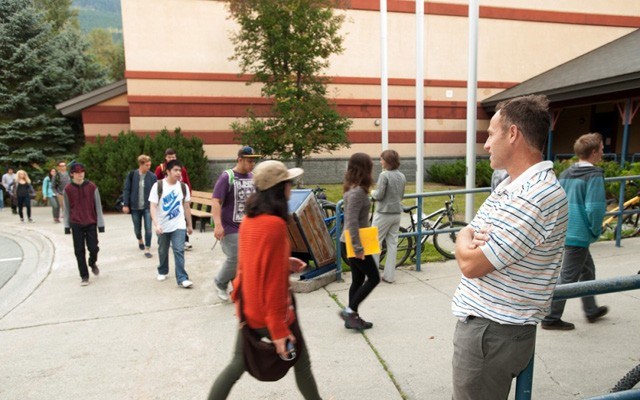Students from three Whistler schools were surveyed this week with the aim of identifying the biggest issues facing the community's youth.
On Monday, Oct. 2, students in Grades 6 through 12 at Myrtle Philip Community School, Spring Creek Community School and Whistler Secondary School were polled as part of the Communities That Care (CTC) Youth Survey. Students were asked specific questions on a wide variety of topics related to issues like drug and alcohol use, bullying and mental health.
Cathy Jewett, chair of CTC Whistler, explained the impetus behind the organization's fourth youth survey since 2003.
"It's really important for us to take stock of where our community is," she said. "Our community is going through a lot of changes, and so as far as the social structures we have to support children and families and everyone in the community, it's important that we make sure we're going in the right direction and that we've got data to guide us."
The results will be used to guide local officials and organizations in future programming decisions. While the survey is administered by CTC across Canada and the U.S., the Whistler chapter will use the insights gleaned to bolster a holistic, localized approach.
"The power in this survey is understanding those risk factors and those protective factors, and then we can, as a community, design something that's specifically Whistler around it." said Whistler Community Services Society director Cheryl Skribe, who also sits on the CTC board.
Some risk factors identified in CTC's last youth survey from 2013 were "favourable" parental attitudes towards both alcohol and substance use, and antisocial behaviour; peer rewards for antisocial behaviour; and a low perceived risk of drug use in the community.
That led to local social-service providers exploring programming that focused on family well-being as a whole, with workshops offered to parents and teachers along with students. One example was a four-part workshop led by Hollyburn Family Service's Chris Burt last spring that was intended for parents in the community.
"Kids were telling us their parents weren't giving them the messaging they felt they needed. That's why we've been focusing on parent education for a lot of what we do," Jewett explained.
Since the last CTC survey four years ago, Skribe highlighted one risk factor that has become increasingly prevalent in Whistler.
"I would say anxiety has really shot to the forefront for children and parents in our community," she noted. "I think everyone is recognizing that this community is very stressed, and in the course of it being stressed it's creating a lot of emotions bubbling up from inside that people don't know how to manage."
That trend formed the basis for another CTC-sponsored workshop being held from Oct. 2 through 5 this week, led by paediatric psychologist Dr. Katherine Martinez, who spoke with students and parents about anxiety at several local schools.
But along with tackling the risks facing our youth, Jewett said identifying the positive elements of the community is an essential goal of the survey, too.
"If there's something that's bolstering positive, pro-social behaviour in our community, then we shouldn't stop it," she said.
Survey results are expected in the New Year, Jewett said.
For more information, visit www.ctcseatosky.com.




